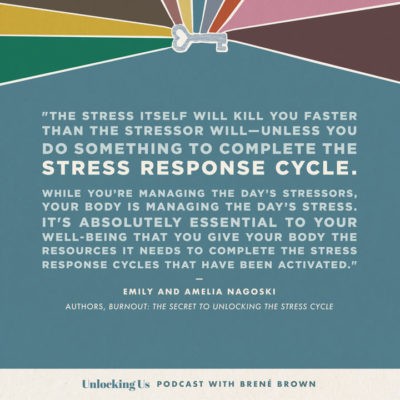It may be hard to hear but even the most motivated teachers are considering (if they haven’t already) walking away.
You may have heard compassion fatigue referenced early on in the pandemic.
More recently, Adam Grant refers to a newer idea of languishing.
But an episode of Brene Brown’s podcast with Emily & Amelia Nagoski nailed what I believe educators (and mothers or any nurturers) have been combating for the past year and beyond – burnout.
They describe three elements of what leads to burnout
- Emotional exhaustion – the fatigue that comes from caring about too much for too long
Beyond this prior year, educators have been tasked with providing education but as we saw even more deeply as the pandemic began, schools and teachers are actually tasked with managing: childcare, feeding families, providing support services of all kinds, mental health services, creating community, protecting against fire drills, lockdown drills, active shooter drills, etc. etc. etc.
Throw in having to put their own health on the back burner this year and trying to help kids process riots, racism, volatile political processes, social injustices, a global pandemic and try to maintain any sense of normalcy around actually helping kids learn and we are at a stress level that is well beyond typical teacher exhaustion.
2. Decreased sense of accomplishment – feeling that nothing you do makes a difference
On a whole, teachers are not valued in our culture. Low pay, unrealistic expectations, unmanageable workload, little respect, etc. Wrap that up in the misogynistic idea that it is our moral obligation to perform in those conditions (aka: the “human giver syndrome”) and you have a group of people whose stress cycle is under constant attack.
There were moments this year like any other that teachers pushed and made magic happen. But in comparison to what we’re used to, even as someone who is good at seeing the bigger picture and is happily working in an environment with supportive students and families, I can tell you that the scales felt extremely lopsided this year in the wrong direction.
3. Depersonalization – depletion of empathy, caring, and compassion
Systemically, it’s called, “standardized education.” Individually, people run out of energy when they are asked to continuously pour into others but are not poured into themselves. It’s self protection. It’s self preservation. It’s survival. It’s necessary.
Listen to the podcast for a more in-depth understanding of how the stress cycle manifests and how completing it is the step that educators and caretakers need to make time for.
The cliff-notes version: self-care isn’t enough. It has to be a community approach.
The year is still too raw and too near to articulate all of the things that we struggled with, but in an attempt to advocate for teachers who cannot express their thoughts freely and who have not been lucky enough to teach in a caring and supportive community, consider how you can take care of your caretakers because we aren’t done yet.
Have you checked in on them? Asked how they are doing? Have you offered to take something off of their plate? Have you emailed, called, or sent any gesture of care or concern to them recently and frequently? Have you expressed gratitude? Are you planning how you’ll advocate for more in the future?
Not just once, but all year. Especially this year. And every year after this too.
You’ve seen teachers walk before the year even began. You can see the announcements of profession changes and retirements abound now. Which some may say, good-that’s normal, it’s an opportunity.
But I’m telling you now from the “inside,” if we don’t acknowledge and address things like this together and now, the teacher shortage will compound, the profession will be non-existent, and we may have students everywhere working virtually-pandemic or not.
Teachers, if you’re not burned out yet or are interested in working in an environment where you can share ideas openly and be supported as a professional, we’re looking to bring new teachers onboard next year.
Send any resumes or inquiries to: [email protected].


